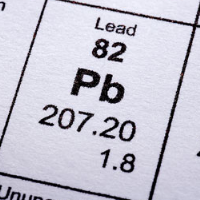State Finally Looks for Lead Near Exide Battery Plant and Finds Lots of It

After a brief diversion following the trail of arsenic contamination from the Exide Technologies battery recycler in Los Angeles County’s city of Vernon, regulators have refocused their attention on lead and found lots of it in surrounding neighborhoods.
The Department of Toxic Substances Control (DTSC) tested soil at 39 homes and two schools near the plant, which recycles up to 40,000 batteries a day, and found elevated levels of lead. The Los Angeles Times reported it was the first time widespread ground contamination was found around the plant, although it has a long history of run-ins with environmental regulators.
Those encounters had mostly to do with airborne arsenic and lead pollution as well as deficiencies at the plant. The South Coast Air Quality Management District (AQMD) filed a civil suit for $40 million in January and sought to shut down the facility until Exide could prove it was in control of toxic emissions.
The AQMD said more than 100,000 people are at heightened risk of cancer from Exide’s emissions.
Investigators did not find arsenic in any of the soil samples. They also didn’t find lead around the schools. But every one one of the homes, within around a half-mile of the plant, had levels exceeding 80 parts per million (ppm), the level that requires further testing. One of the homes showed 580 ppm and a Headstart program location registered 95 ppm. Averages were over 160 ppm.
State officials told the Times that current levels of detected lead do not pose an immediate threat to adults, but pregnant women and children are another story. Residents are being warned to wash their hands after touching soil—not something most kids will probably do—and only grow gardens in raised soil beds.
The toxic data was gathered by Advanced Geoservices for Exide, which recommended that the state not do any further testing until the information already gathered could be digested and risk assessments conducted.
DTSC rejected that recommendation (pdf) and gave Exide a couple weeks to come up with a plan for more testing. Exide has already agreed to state demands that it spend $7,7 million on plant improvements to reduce arsenic emissions.
Exposure to lead causes permanent brain damage and about half a million American kids have too much of it in their system. Lead lowers IQs, causes learning disabilities and has been linked to criminal behavior, stunted growth, seizures and a range of maladies. Needless to say, arsenic isn’t any better. It is notoriously poisonous and has been linked to cancer, heart disease, stroke, respiratory diseases and diabetes.
The Exide plant, like many polluting facilities in the state, can’t have its permit to operate revoked—it doesn’t have one. The plant has operated under “interim status” for decades under a permitting system that the DTSC admits (pdf) is regarded with “significant dissatisfaction.” It is one of the complaints heard from those who think the agency favors corporate interests over the public welfare.
–Ken Broder
To Learn More:
Lead Found in Soil Around Exide in Vernon; DTSC Regulators Order More Tests (by Molly Peterson, KPCC)
High Lead Levels in Soil near Battery Plant Prompt Health Warnings (by Jessica Garrison, Los Angeles Times)
AQMD Sues Bankrupt Exide Battery Recycler in Heart of L.A. County for $40 Million (by Ken Broder, AllGov California)
- Top Stories
- Controversies
- Where is the Money Going?
- California and the Nation
- Appointments and Resignations
- Unusual News
- Latest News
- California Forbids U.S. Immigration Agents from Pretending to be Police
- California Lawmakers Urged to Strip “Self-Dealing” Tax Board of Its Duties
- Big Oil’s Grip on California
- Santa Cruz Police See Homeland Security Betrayal in Use of Gang Roundup as Cover for Immigration Raid
- Oil Companies Face Deadline to Stop Polluting California Groundwater





